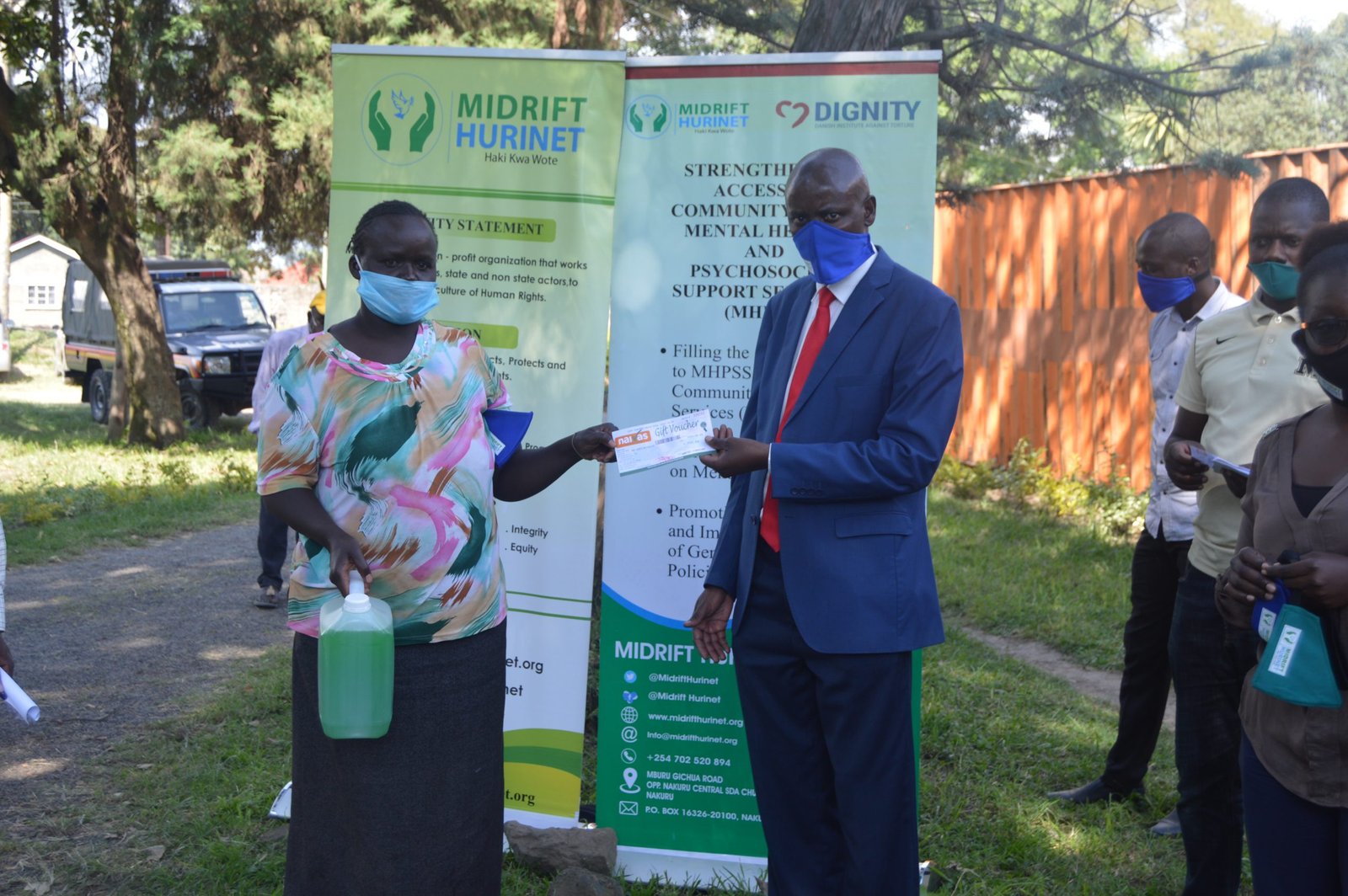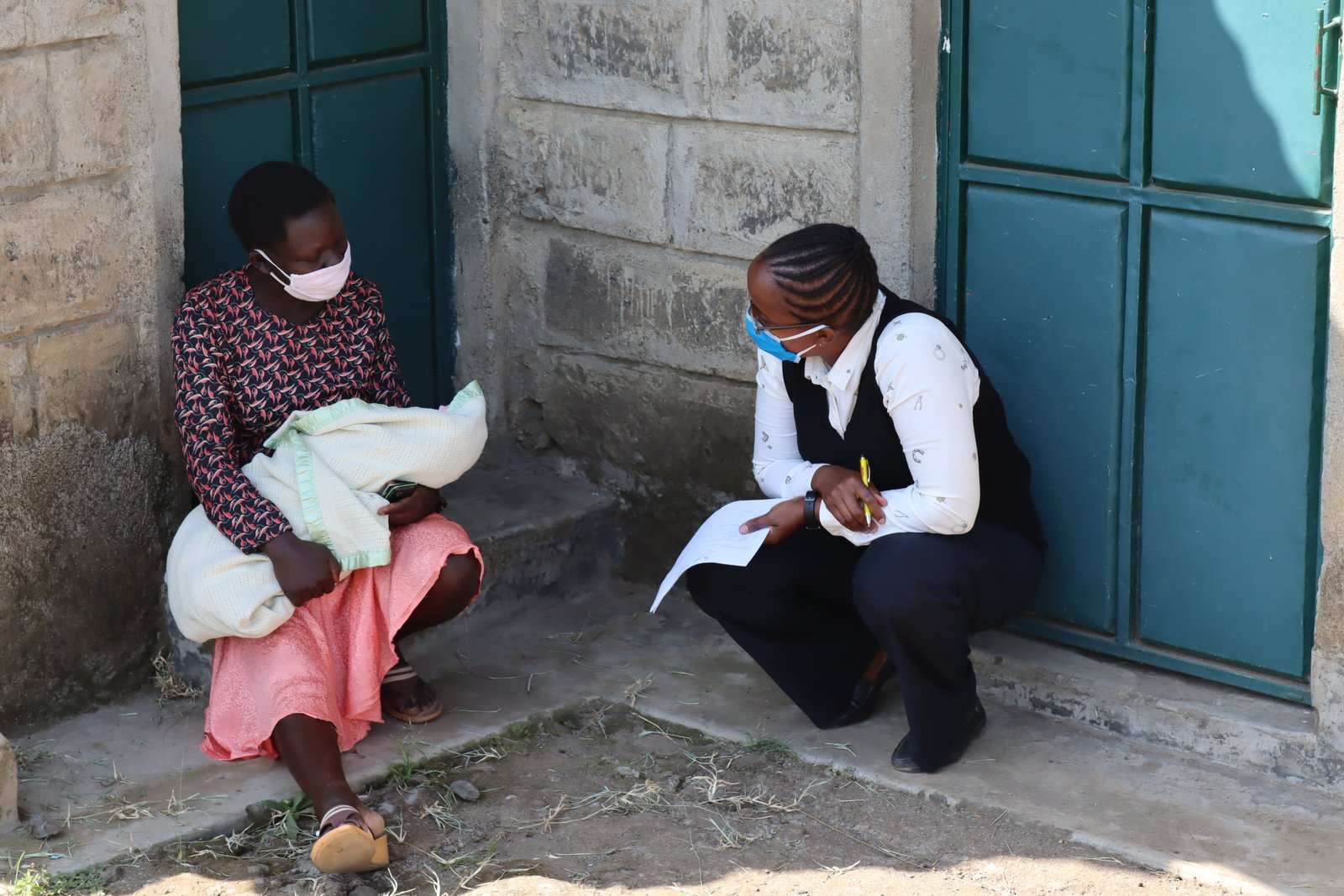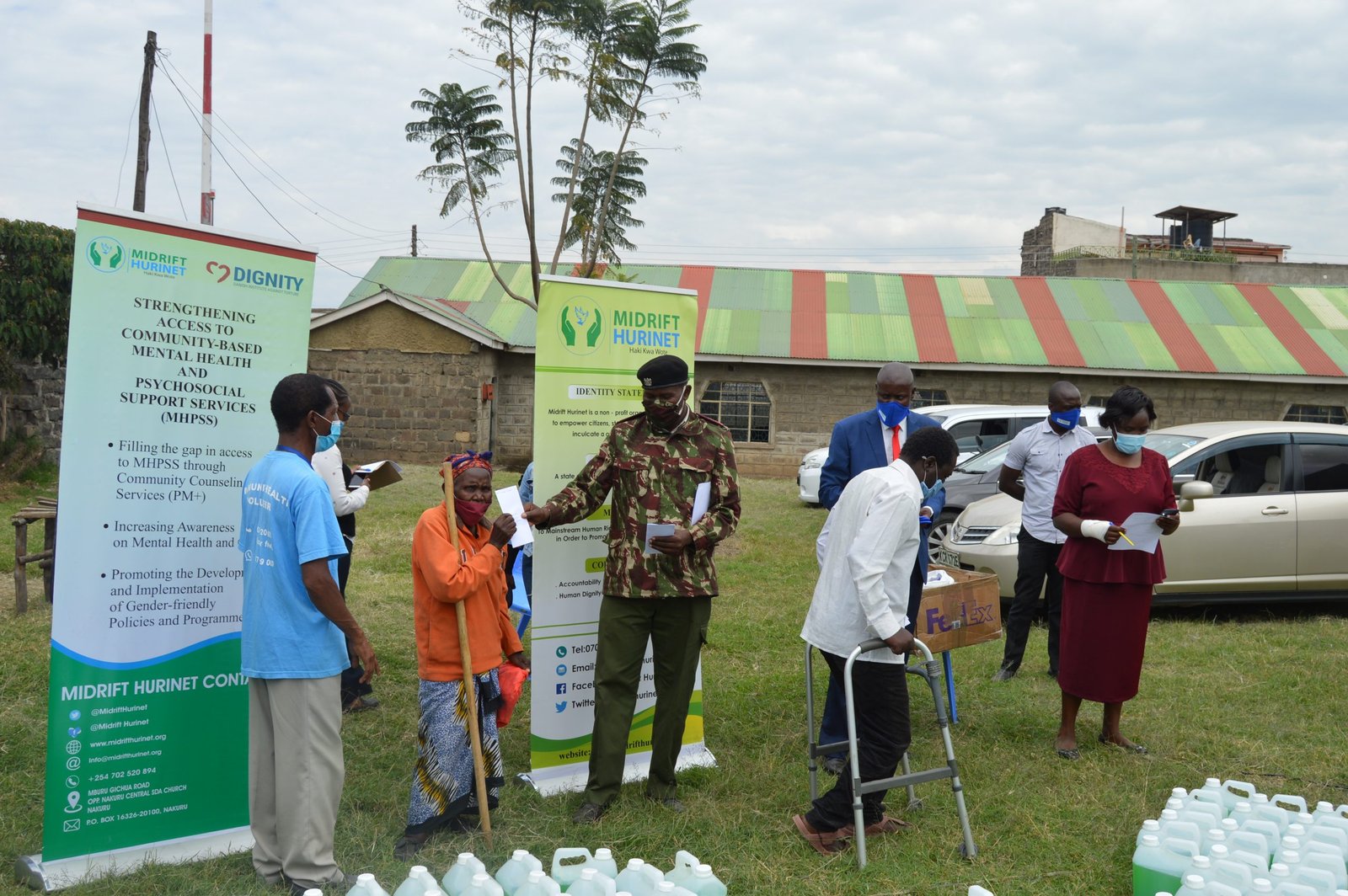Danish Emergency Relief Fund (DERF)
The DERF program is an emergency response program towards the COVID 19 PANDEMIC. The humanitarian intervention is funded by the Danish Emergency Relief Fund (DERF). It focuses on prevention and mitigation (early action) of health and non-health impacts of COVID19 on particularly vulnerable population groups. In collaboration Midrift Hurinet is implementing the program in informal settlement areas of Nakuru county in three Sub-counties of Nakuru West Nakuru East and Naivasha.

The purpose of the intervention is to enable vulnerable people who have lost access to income and basic services in the informal settlements of Nakuru County to better cope with the social, economic, and health effects of the COVID-19 pandemic. This is implemented by Midrift Hurinet through;
- Facilitating and leading the coordination mechanisms consisting of local government (including health authorities), security agencies, and CSOs at county, sub-county, and ward levels on COVID-19 response.
- Facilitating and carrying out awareness raising activities on the prevention from infection and treatment options to vulnerable people.
- Providing WASH packages including water tanks, hand washing soap, sanitizers and face masks.
- Providing livelihood care package for identified vulnerable households
- Facilitating access to PFA through the existing community volunteer structure and its supervision system and referral mechanism
The intervention areas are particularly exposed to fragile situations and humanitarian crises. Consequently, the COVID-19 situation and the restrictions of the government has hit the population disproportionally and many underlying drivers of vulnerability in the intervention area have resulted increased vulnerability specially the most poor and vulnerable people out of which many are self-employed, an informal wage bracket or have lost a low pay formal jobs and therefore unable to secure an income required to meet their basic needs. The intervention areas constitute of the informal settlements of Karagita in Naivasha Municipality (approx. 34,972 inhabitants) and Kaptembwo/Rhonda (approx. 73.325 inhabitants), and Bondeni in Nakuru Municipality (approx. 21.813 inhabitants) are located within Nakuru County. The areas have a dense population with limited access to basic services and social protection and its population is one the most vulnerable and marginalized population in Kenya with a high degree of poverty, violence and poor health outcomes.
The intervention is based on a need assessment which has taken place in dialogue with relevant stakeholders, including local institutions, authorities and civil society. The need assessment has contributed to the identification of potential risks, existing capacities and the identification of the most vulnerable groups to ensure that it addresses the real needs of the beneficiaries. Moreover, it takes into consideration learnings from the Community Health Volunteers who have been in contact with the most vulnerable groups, especially women who have been exposed to violence, and thus have access to valuable knowledge about the needs of the beneficiaries .Midrift Hurinet furthermore seeks to establish a pool of emergency response people at county, sub-county, and ward level working effectively and in coordination across all relevant sectors to reach vulnerable groups in Nakuru County.



